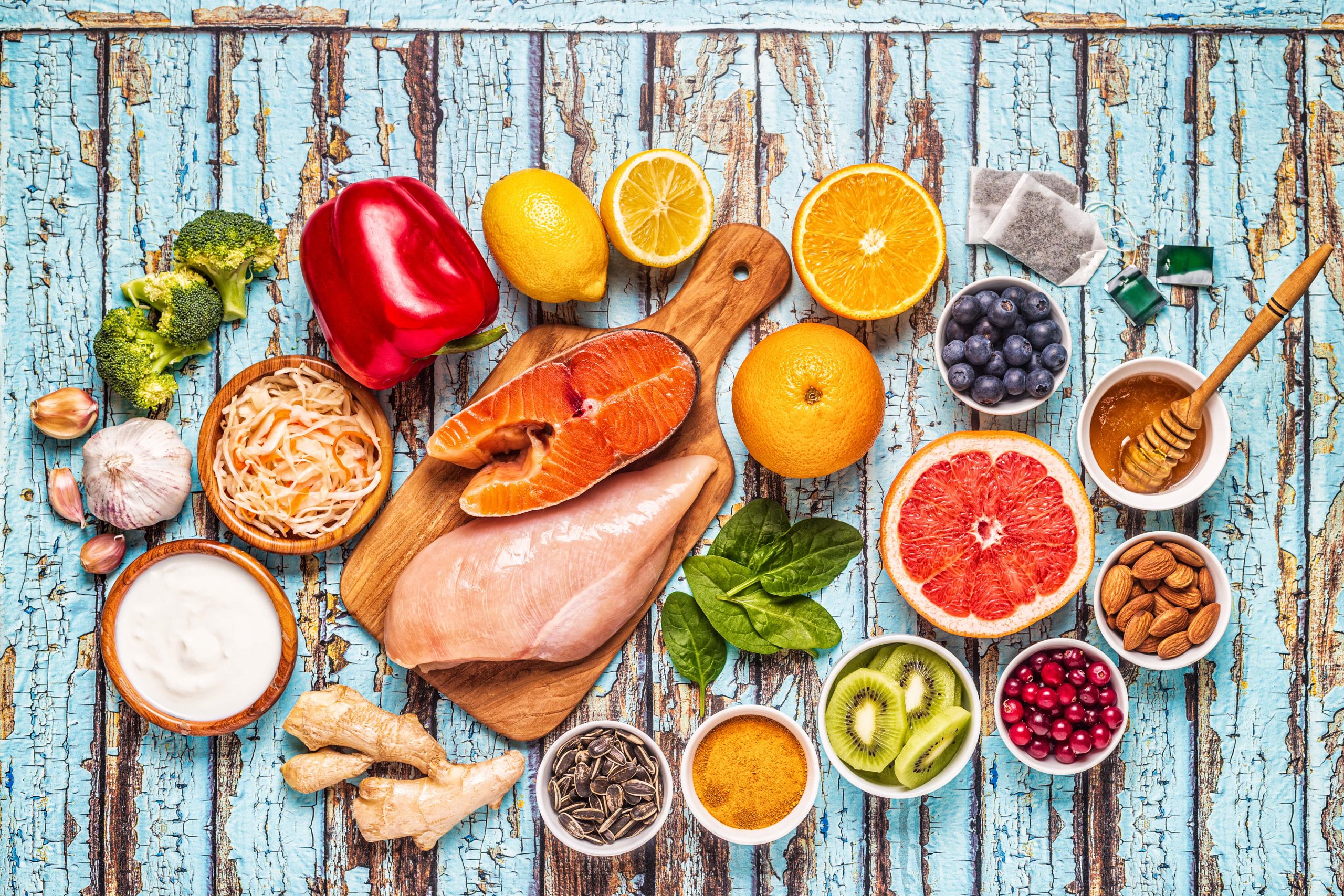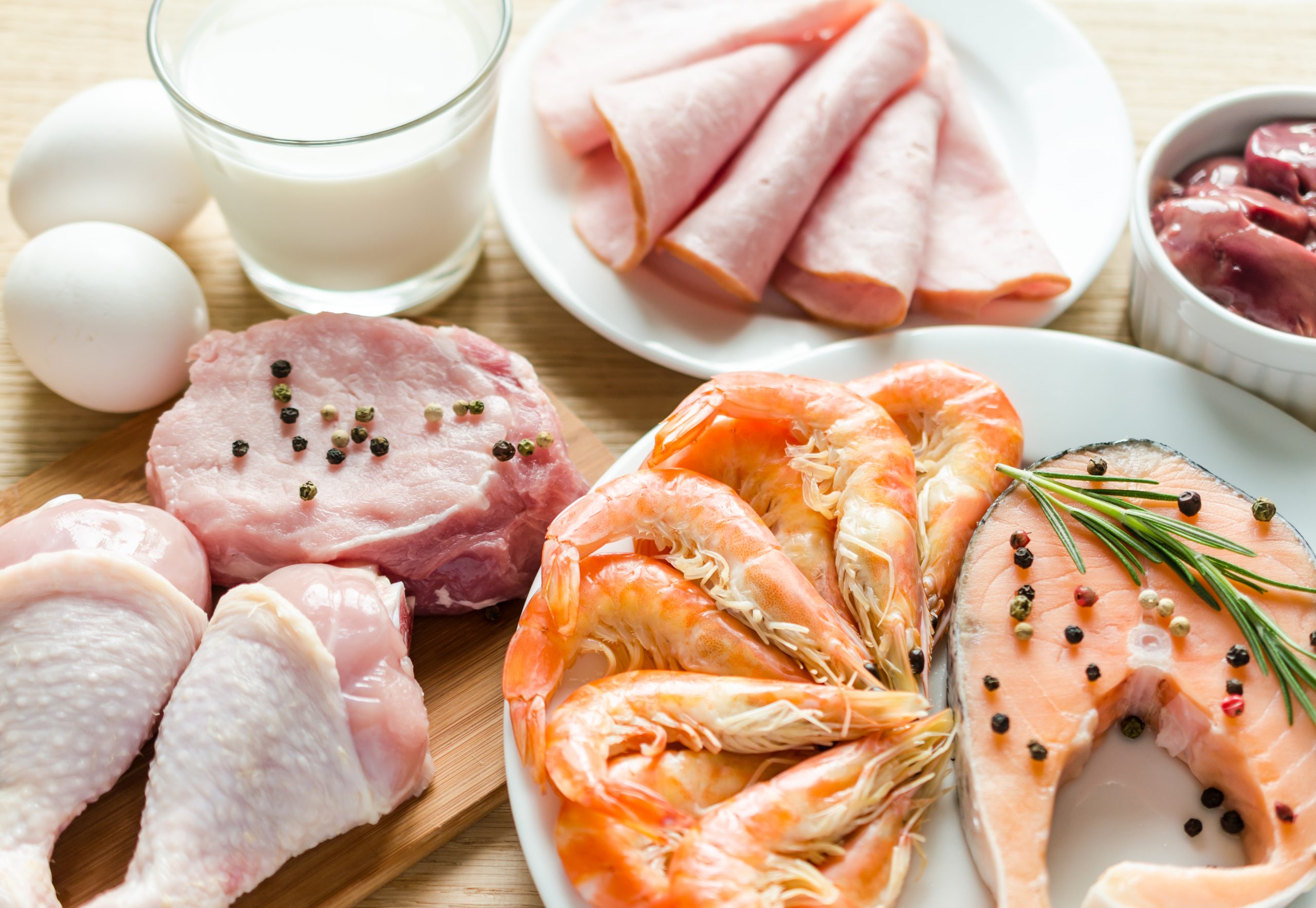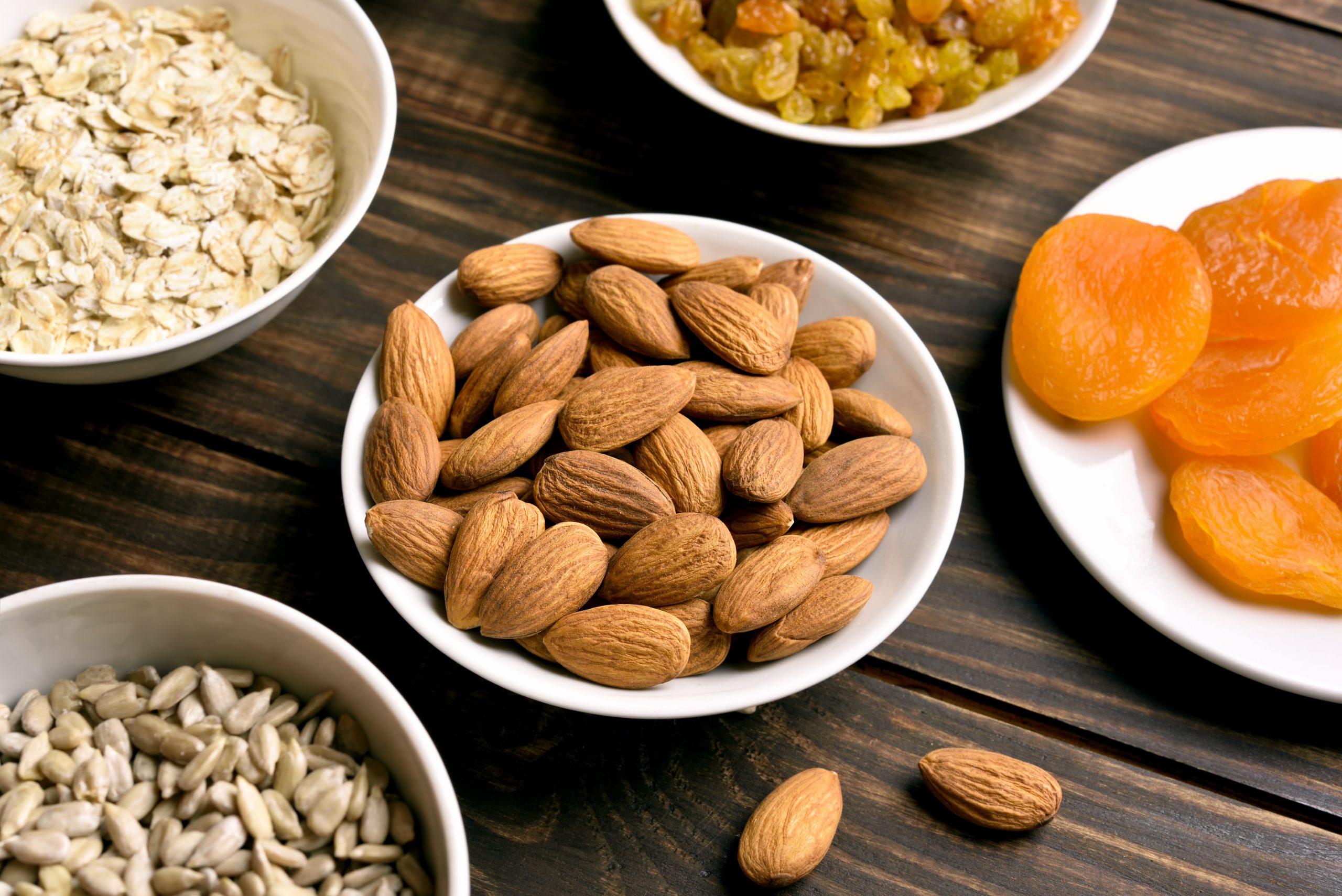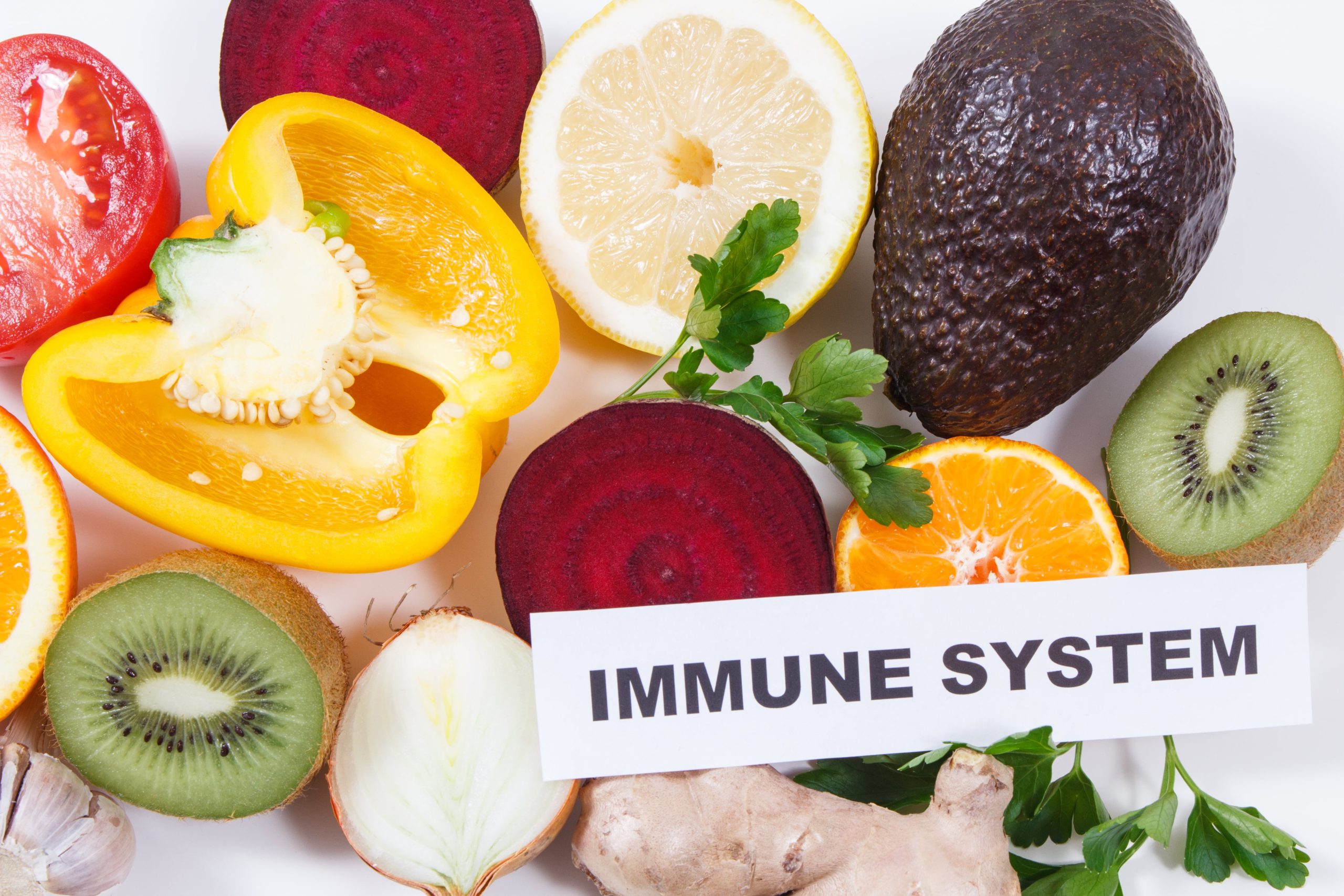Eating healthy isn’t just about avoiding unhealthy food; it’s about loading up on the good stuff. Superfoods are nutrient-packed powerhouses that can help you build a strong and healthy body and mind. From pomegranates to dark chocolate, these top 10 superfoods will have you feeling your best in no time!
1. Pomegranate Is a Lesser-Known Heart Helper
Pomegranate is a lesser-known superfood that packs a powerful punch for your heart health. Not only does it contain an abundance of omega-3 fatty acids, which can help reduce blood pressure and improve overall brain function, but it’s also a rich source of antioxidants, which can reduce the risk of heart disease. Pomegranates are also an excellent source of folic acid, a B vitamin that helps lower blood sugar levels.
This superfood is also packed with important amino acids, which are essential for maintaining cognitive decline as we age. Leafy greens like spinach and kale are also good sources of these amino acids, but pomegranate offers a unique flavor profile that makes it more enjoyable to eat than just plain vegetables! Plus, pomegranate seeds provide an additional boost of fiber, helping to keep you fuller longer while providing numerous other health benefits.
2. Berries have been found to support brain health and potentially protect against Alzheimer’s disease.
Berries are every health-nut’s go-to snack. Not only are they sweet and delicious, but they’re also incredibly nutritious! Studies have recently shown that berries can help protect against Alzheimer’s disease, while also supporting brain health.
The key to the benefits of berries lies in their high antioxidant content. Antioxidants are beneficial compounds that protect cells from damage caused by free radicals. Free radicals are unstable molecules produced during normal metabolic processes, but when present in large amounts can cause inflammation and tissue damage. Berries contain compounds like anthocyanins which neutralize these harmful molecules and reduce oxidative stress in the body, helping to reduce your risk of developing Alzheimer’s disease.
Berries have also been found to improve memory and learning capabilities due to their anti-inflammatory properties. Additionally, they contain a variety of vitamins and minerals, including Vitamin C and folate which are essential for healthy brain function.
So if you want to give your brain an extra boost, make sure you include some berries in your diet! They’re a tasty addition to any meal or snack and will ensure you get the most out of each bite.
3. Discover the powerful benefits of broccoli – from warding off cancer to fighting disease!
Broccoli is an incredible superfood that has numerous health benefits. It’s an excellent source of vitamins, minerals and antioxidants, which can help protect your body against a range of chronic diseases. Not only that, but broccoli is also rich in fiber and folic acid – both important for keeping your blood sugar levels in check.
Studies have also found that eating broccoli can reduce your risk of developing cancer. It contains powerful antioxidants such as sulforaphane and indoles which have been found to fight off free radical damage and inhibit the growth of cancerous cells. On top of this, regular consumption of broccoli may also lower your risk of heart disease by reducing cholesterol levels and blood pressure.
But that’s not all! Eating broccoli regularly may also help to improve cognitive function, ward off age-related cognitive decline and enhance mental health. This green vegetable is also a great source of protein and amino acids – essential building blocks for our bodies – as well as iron, potassium and calcium.
So if you’re looking for a way to boost your overall health – both physical and mental – then make sure you include plenty of broccoli in your diet!
4. Seafood is a source of omega-3 fatty acids which are beneficial for heart health.
Seafood is an excellent source of omega-3 fatty acids, which are incredibly beneficial for heart health. Omega-3s have been found to reduce inflammation and lower the risk of heart disease by preventing blood clots and reducing cholesterol levels. They are also linked to a decreased risk of stroke and other cardiovascular diseases.
In addition, omega-3s can help to improve brain function, enhance mental health and reduce the risk of age-related cognitive decline. This is because they promote the production of serotonin – our body’s “happy hormone” – as well as dopamine, which helps us focus on tasks. So if you’re looking for a way to look after your brain and heart health at the same time, then make sure you incorporate plenty of seafood into your diet!
When it comes to buying seafood, aim for wild-caught varieties where possible – these tend to have higher levels of omega-3s than farmed alternatives. Fish such as salmon, mackerel and sardines are all great sources – just be sure not to eat them too often in order to avoid any potential mercury poisoning. Try adding some seafood into your meals once or twice a week for a healthy boost!
5. Garlic and onions have been found to potentially have a positive effect on blood pressure levels.
Garlic and onions are both incredibly versatile and flavorful ingredients that can be used in a variety of dishes. But did you know that they may also have potential health benefits? Research has shown that garlic and onions can help to reduce high blood pressure levels, which is known to increase the risk of stroke, heart attack and other cardiovascular diseases.
These superfoods contain compounds called thiosulfinates, which help to relax the walls of your blood vessels and thus lower your blood pressure levels. Additionally, garlic is a rich source of amino acids which can help to improve circulation in your body and support healthy blood flow. Furthermore, it’s also a great source of folic acid – an essential nutrient for overall health – as well as vitamins B6 and C.
Onions are also beneficial for heart health due to their anti-inflammatory properties, as well as their ability to reduce cholesterol levels in the body. They’re also packed with antioxidants which can help protect against chronic diseases like cancer and diabetes. So if you’re looking for a way to look after your heart health without having to take medication, then adding some garlic or onion into your diet could be just what you need!
6. Mushrooms may help with breast cancer treatment, but more research is necessary.
Mushrooms are a delicious and versatile ingredient that can be used in many dishes. But did you know that they may also have potential health benefits? Research has suggested that certain types of mushrooms, such as shiitake, oyster and maitake, could help to reduce the risk of breast cancer.
The active compounds found in mushrooms are believed to inhibit the growth and spread of cancer cells. Furthermore, these compounds are thought to boost the effectiveness of chemotherapy drugs and support overall immune system health.
While this research is promising, it’s important to note that more studies still need to be done before any conclusions can be made about the efficacy of mushroom-based treatments for breast cancer. However, including mushrooms as part of a healthy diet may still benefit your overall health in various ways.
Mushrooms offer a great source of vitamin D (which helps strengthen bones) and B vitamins (which aid energy metabolism). They’re also low in calories yet high in fiber which makes them excellent for weight loss diets – plus they add a delicious flavor to meals.
So while mushrooms may not have been proven to treat breast cancer just yet, they can certainly make a tasty addition to any meal as well as provide some potential health benefits.
7. Nuts and seeds provide a significant amount of plant protein and may contribute to weight management.
Nuts and seeds are a great addition to any diet, as they provide a significant amount of plant-based protein and can help with weight management. Eating nuts and seeds regularly can help reduce your risk for chronic diseases like heart disease, diabetes, and stroke. Nuts are also high in fiber, healthy fats, vitamins, minerals, and antioxidants.
Eating a handful of nuts or seeds each day is recommended as part of a balanced diet. Almonds are an excellent source of vitamin E, while walnuts provide omega-3 fatty acids that support brain health. Sunflower seeds are rich in folate which helps to regulate blood pressure levels. Pumpkin seeds contain zinc which aids cognitive function and mental health. Chia seeds are an excellent source of fiber which helps to maintain blood sugar levels.
Incorporating nuts and seeds into your daily routine is fairly easy – you can sprinkle them on top of yogurt or cereal for breakfast; add them to salads or sandwiches for lunch; snack on them throughout the day; or enjoy trail mix as an evening snack. For dinner dishes like stir fries or casseroles you can sprinkle some nuts or seeds over the top for added flavor and texture.
Overall, adding nuts and seeds to your diet could be beneficial for both body and mind! They might even help you lose some extra pounds too!
8. Power up your plate with dark and leafy greens to slash your risk of colorectal cancer!
Powering up your plate with dark and leafy greens is an easy way to slash your risk of colorectal cancer. Leafy greens are a nutritional powerhouse, packed with essential vitamins, minerals, fiber and powerful antioxidants that help protect against disease. Eating just one cup of cooked spinach, kale or Swiss chard each day has been linked to a lower risk of colorectal cancer.
Leafy greens are also low in calories, making them ideal for weight management. The dietary fiber found in dark and leafy greens helps you feel fuller longer, which can mean fewer cravings throughout the day. Plus, they contain important vitamins and minerals like folate and vitamin K which help support healthy brain function and cognitive decline.
Adding more leafy greens to your diet doesn’t have to be boring or time consuming – try stirring some into scrambled eggs for breakfast; adding them to sandwiches or salads for lunch; incorporating them into stir fries for dinner; or adding some fresh spinach leaves to smoothies for a quick snack.
Eating dark and leafy greens doesn’t just lower your risk for colorectal cancer – it also supports overall health! So start powering up your plate today – you won’t regret it!
9. Dark chocolate is considered a potentially healthy dessert option that could have mood-boosting benefits.
Dark chocolate is a dessert that many people can enjoy guilt-free. It contains flavonoid antioxidants which can help protect against disease, and some studies suggest it could even have mood-boosting benefits. Dark chocolate may contain compounds like caffeine and theobromine that can provide an energizing boost to your day. In addition, dark chocolate is high in magnesium and iron which both contribute to overall health.
The key to reaping the potential health benefits of dark chocolate is moderation – stick to one ounce or less per day. Choose a dark chocolate with a cocoa content of at least 70% for maximum antioxidant power. Keep in mind that dark chocolates are still high in sugar, so it’s important to be mindful of your portion size and limit yourself to just one serving per day!
Dark chocolate can be enjoyed as part of a healthy diet, as long as you practice moderation and balance it out with nutrient-rich foods like fruits, vegetables, proteins and whole grains. Try adding some dark chocolate shavings to your breakfast oatmeal or pairing it with fruit for a deliciously satisfying snack!
10. Beans and legumes can lower cholesterol.
Beans and legumes are a delicious, nutrient-rich addition to any diet. Not only are they an excellent source of protein, fiber, and other essential vitamins and minerals, but they can also help to lower cholesterol levels. Eating more beans and legumes has been linked to lower levels of low-density lipoprotein (LDL) cholesterol – the “bad” kind – as well as an increase in high-density lipoprotein (HDL) cholesterol, the “good” kind.
Studies suggest that eating at least one cup of cooked beans or legumes per day can reduce LDL cholesterol by up to five percent. Beans and legumes are naturally low in saturated fat and trans fat which can raise your LDL cholesterol levels. They also contain soluble fiber which helps trap dietary cholesterol before it can be absorbed into the bloodstream, thus lowering your total cholesterol levels.
Incorporating more beans and legumes into your diet is an easy way to boost your intake of heart-healthy nutrients while reducing your risk of heart disease. Try adding some chickpeas or lentils to salads or soups for an extra punch of flavor and nutrition! For even more health benefits, try swapping out refined carbohydrates like white bread or pasta with whole grain versions that include beans or legumes such as quinoa or farro.

Conclusion
In conclusion, a healthy and balanced diet is key to having a healthy body and mind. Superfoods such as omega-3 fatty acids, dark chocolate, beans and legumes can help to boost your overall health. Eating these foods in moderation can also help to reduce the risk of developing certain chronic diseases and improve mental health. Incorporating more fresh fruits, vegetables and whole grains into your meals is also essential for optimal health. By following these tips, you can enjoy the benefits of a healthy body and mind.











